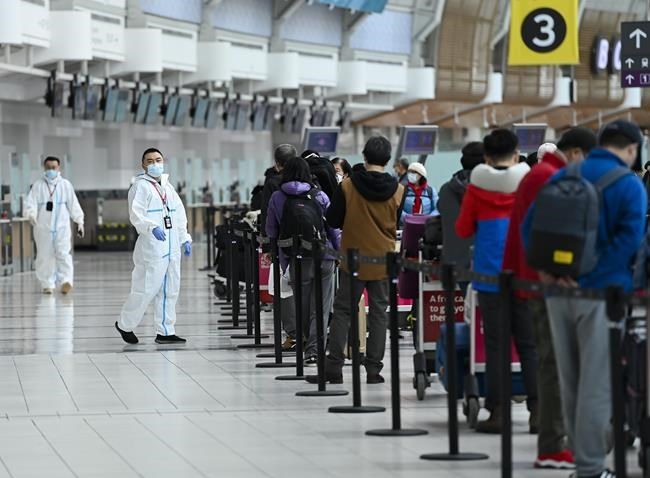The federal government and a consumer rights advocate squared off in court Wednesday over whether regulators misled passengers by encouraging travel credit rather than refunds at the onset of the pandemic.
In the early months of COVID-19's spread, airlines cancelled hundreds of thousands of flights and offered company vouchers to customers instead of refunds.
The Canadian Transportation Agency issued a statement on vouchers in March 2020 that said flight credit constituted a “reasonable approach" to passengers left out of pocket by the cancelled trips. The post suggested a refundwas mandatory only if the contract between the customer and airline provided for it.
The Air Passenger Rights advocacy group argues that the regulator showed potential bias by misinforming travellers about their legal right to a refund for services not rendered.
"By giving the public a false sense of legitimacy to the airlines’ unlawful actions, the CTA’s statement on vouchers defeated existing federal laws for refunds and unlawfully interfered with passengers’ credit card chargebacks and travel insurance claims," the group stated in court filings.
The government argued the case should be dismissed, saying the CTA's statement simply reiterated that vouchers were one means of compensation. It said the advocacy group incorrectly framed the guidance as tainted.
"The CTA, faced with an unprecedented worldwide situation, issued the statement as non-binding guidance. The statement does not represent any decision by the CTA" — and thus never breached consumers' rights — the attorney general wrote in court filings.
Air Passenger Rights lawyer Simon Lin argued the CTA's statement about vouchers was prompted by a request from Air Transat to the Transport Department.
The group asked the Federal Court of Appeal to order a retraction of the voucher statement, along with a correction.
It also asked the judicial panel to prevent the agency's tribunal members from handling refund cases relating to the pandemic.
In court on Wednesday, the judges seemed to cast doubt on parts of Air Passenger Rights' argument, asking repeatedly for examples of agency decisions that denied refunds to passengers on the basis of the CTA's voucher statement. They also questioned whether the regulator's statement came at the behest of airlines.
"Even if we accept your premise, you still have to show that it affects legal rights," said Chief Justice Yves de Montigny.
The relationship between Canada’s airline watchdog and the travel industry came under renewed scrutiny in 2021 after emails from the early days of the pandemic were released. In those emails, airline industry executives pressed civil servants to back their position against issuing passenger refunds, days before the regulator did just that.
Three days after a letter from Transat's chief executive at the time asking for confirmation that "no refunds to passengers are required," the CTA posted its statement, saying that airlines could generally issue flight credits or vouchers to customers whose flights had been cancelled because of the pandemic, rather than refunding them.
The Association of Canadian Travel Agencies also wrote to the regulator asking it to help them with “prevention of credit card chargebacks.”
The CTA's statement on March 25, 2020, sparked public backlash and thousands of complaints to the transportation agency.
Several airlines agreed to reimbursement more than a year after the fact as a condition of aid packages from Ottawa starting in April 2021.
An update to the passenger rights charter in 2022 required carriers to refund customers in force majeure situations, such as a pandemic.
This report by The Canadian Press was first published April 17, 2024.
Christopher Reynolds, The Canadian Press




